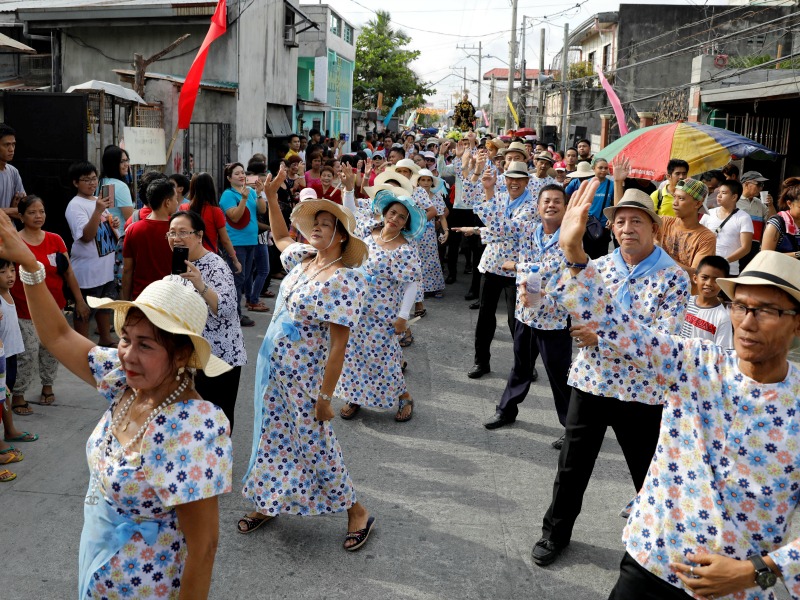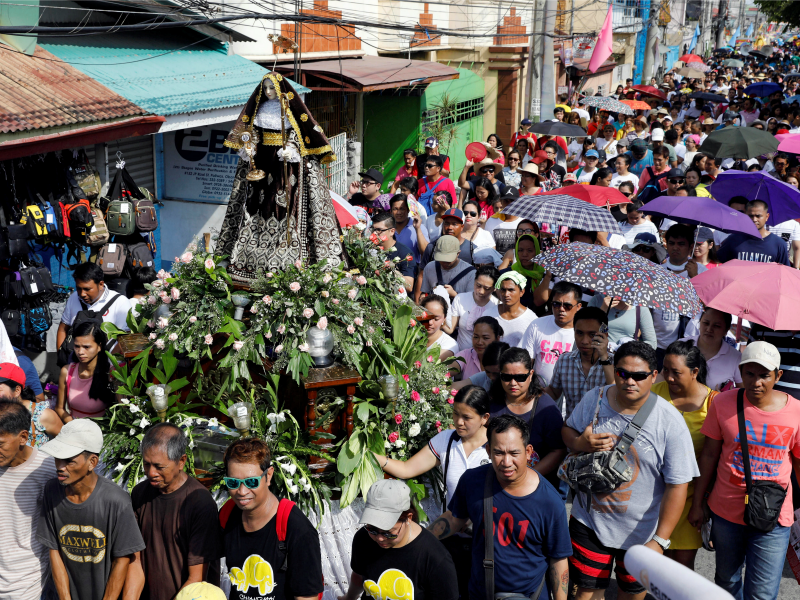OBANDO, Philippines (Reuters) There was dancing in the streets of Obando town in the northern Philippines as people feted patron saints they believe bring spouses, fertility and good harvests.
Costumed Catholics carrying chariots bearing statues of saints Clare de Assisi, Paschal Baylon and Our Lady of Salambao — a local title for the Virgin Mary — paraded to cheery music being played by a band on Wednesday (May 17) in a procession to church.
[ad number=”1″]
Carlinita Verlimata, who has had three consecutive miscarriages, has been dancing in the festival for three years in the hope that the patron saints will grant her a child.
“I’m here because I believe in what our elders say,” the 37-year-old teacher said.
“When you devote yourself to the saints here, your wish will come true, especially if your wish is to have children.”
[ad number=2″]
The three-day festival that has been celebrated for decades also caters to those wishing to find a suitable partner. Fishermen and farmers pray as well for bountiful harvests and catches at sea.

Filipino religious devotees take part in a fertility dance during a religious festival in Obando, Bulacan, on May 17, 2017, in the Philippines. Photo by Erik De Castro/Reuters
Moving to a beat that becomes more frenzied as they enter the church, supplicants waved their hands in the air and jumped up and down, as they sang along with priests and seminarians.
[ad number=”3″]
“Our bodies were created for God’s purpose,” said seminarian Joseph Sison.
“So if we can use our bodies for holy deeds, to pray to God, like King David who prayed through dance, God would be delighted to know that we’re using our bodies not for sin, but to worship him. That’s why dancing has become a tradition here.”
(Reporting by Ronn Bautista; writing by Karishma Singh)





